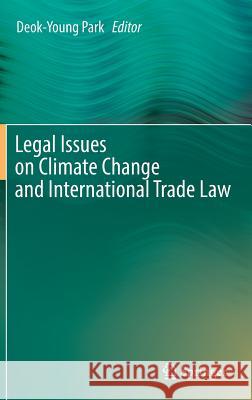Legal Issues on Climate Change and International Trade Law » książka
topmenu
Legal Issues on Climate Change and International Trade Law
ISBN-13: 9783319293202 / Angielski / Twarda / 2016 / 218 str.
Kategorie:
Kategorie BISAC:
Wydawca:
Springer
Język:
Angielski
ISBN-13:
9783319293202
Rok wydania:
2016
Wydanie:
2016
Ilość stron:
218
Waga:
0.50 kg
Wymiary:
23.39 x 15.6 x 1.42
Oprawa:
Twarda
Wolumenów:
01
Dodatkowe informacje:
Wydanie ilustrowane











